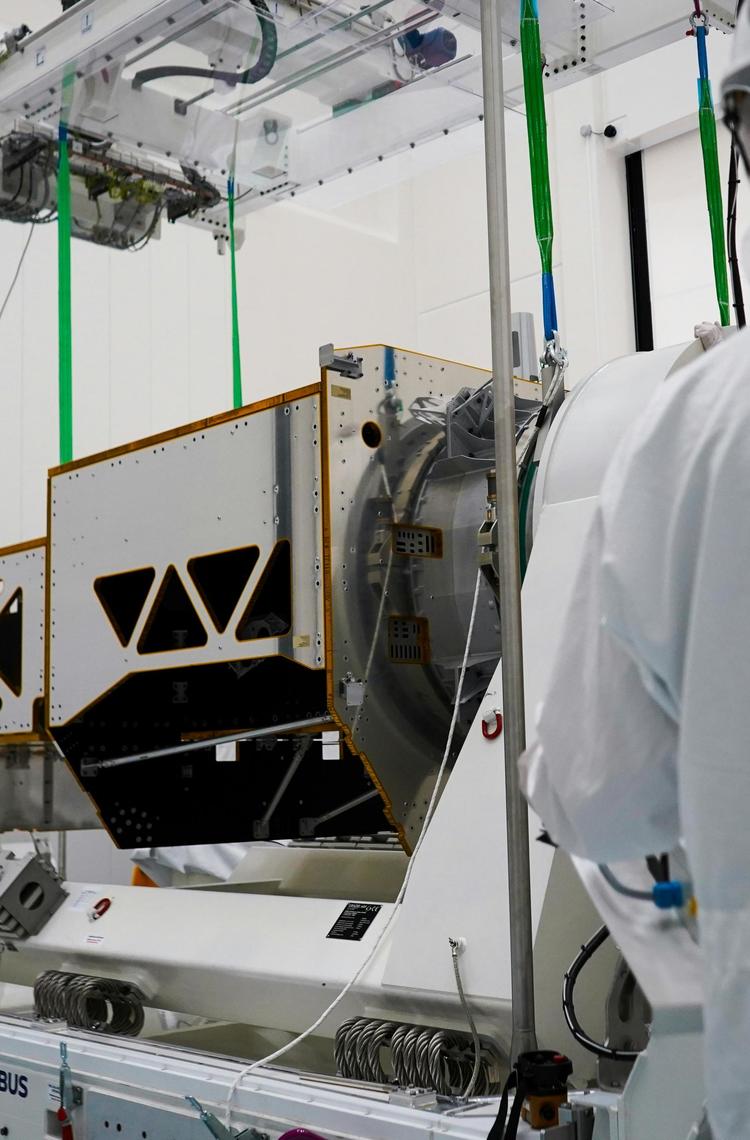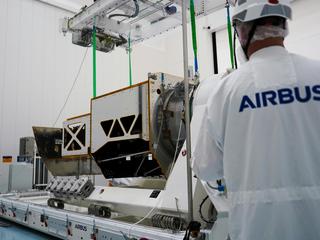Friedrichshafen, 23.10.2024 - It has been an eventful few months for the Polar Ice and Snow monitoring mission CRISTAL. After successfully completing the Critical Design Review in July – a key milestone to confirm the robustness of the design and technical capabilities of the spacecraft – Airbus has now officially started manufacturing and assembling of the satellite.
Like other Copernicus missions, CRISTAL is funded by the European Commission and managed by the European Space Agency. CRISTAL satellites will carry an advanced multi-frequency altimeter to measure sea ice thickness and ice sheet elevations - key climate change indicators. This altimeter, called IRIS, will measure snow coverage of the ice sheets for the first time, which will improve data quality significantly compared to its predecessor CryoSat-2. These data will support maritime operations in polar oceans and contribute to a better understanding of climate processes.
CRISTAL will also support applications related to coastal and inland waters and the observation of ocean topography. The mission will ensure the long-term continuation of radar altimetry ice elevation and topographic change records, following on from previous missions such as ESA’s Earth Explorer CryoSat, also developed by Airbus and working flawlessly for 14 years, well beyond its design lifetime. Monitoring the cryosphere is essential to fully assess, predict and adapt to climate variability and change.
At the beginning of September, the satellite’s flight structure was delivered from APCO Technologies in Aigle, Switzerland, to Airbus in Friedrichshafen, Germany. Today production of the satellite is moving full steam ahead with installation of the multi-layer insulation and will soon be ready for integration of the harness followed by key platform equipment such as the power control and distribution unit and the on-board computer.
“Now that we have completed the design phase, the first elements of the satellite are taking shape in our clean room. The integration and test of the platform will last for a few months. Our objective is to be ready to welcome the first payload, the microwave radiometer, in spring next year followed by the IRIS altimeter,” said Raphaël Caille, CRISTAL Project Manager at Airbus.
The 1.7 ton spacecraft is based on a proven, robust Airbus satellite design building on the heritage from Sentinel-6 and CryoSat. Six fixed and two deployable solar arrays - 18 m² in total - ensure enough power on CRISTAL’s drifting polar orbit at 699 km above the Earth. Its on-board memory will be able to store up to 4 terabits of science data at once, providing scientists with a wealth of information during its 7.5 year lifetime.
The Airbus Defence and Space site in Friedrichshafen (Germany) is heading an industrial consortium involving companies from 19 countries to deliver the project, including Thales Alenia Space to provide the IRIS Interferometric Radar Altimeter. The satellite platform and instrument will be integrated and tested in the new, highly digitalised integration centre at Airbus in Friedrichshafen. CRISTAL is currently scheduled for launch from the European spaceport in Kourou in 2027.
Your media contacts
Contact us
Ralph Heinrich
AIRBUS | Defence and Space
Jeremy Close
AIRBUS | Defence and Space
Guilhem Boltz
AIRBUS | Defence and Space
Beatriz Lozano
AIRBUS | Defence and Space

